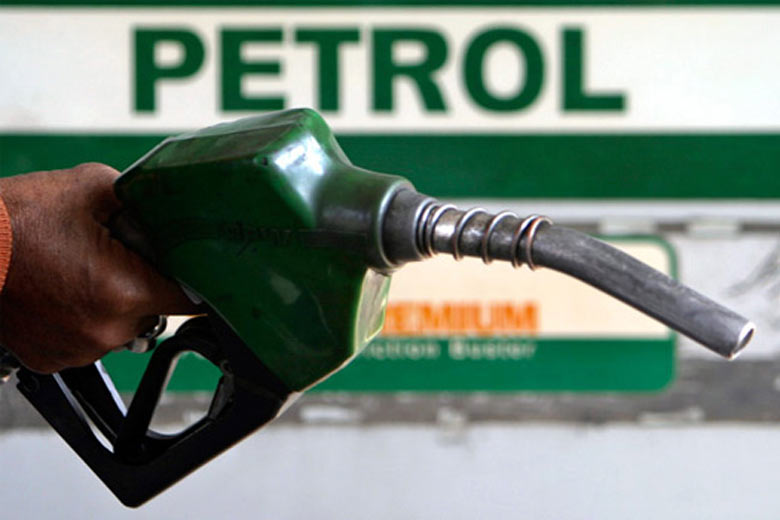Economy
We Can’t Sell Petrol at a Loss, NNPC Replies Marketers

- We Can’t Sell Petrol at a Loss, NNPC Replies Marketers
The Nigerian National Petroleum Corporation has said that it cannot sell Premium Motor Spirit, popularly called petrol, at a loss, regardless of the demands of oil marketers, as it buys the commodity at N116.28 per litre.
NNPC disclosed this while responding to claims by oil marketers that the price of PMS being sold to them (marketers) by the corporation was high and that this had led to the shutdown of many oil marketing firms nationwide.
The Depot and Petroleum Products Marketers Association of Nigeria had told our correspondent that the increase in the price of PMS sold to them by NNPC from N111 per litre to N117 per litre had made many marketers to close shop because they were not making a profit, as exclusively reported on Sunday.
The marketers also stated that a lot of jobs had been lost due to the shutdown of businesses by oil dealers, adding that this might trigger a widespread petrol crisis in the sector if not handled adequately.
“The increase from N111 per litre to N117 was done by the NNPC over a year ago and marketers have been finding it tough, which is why most marketers are no longer in business. I have written letters several times that it should be reversed and that is why a lot of marketers are no longer importing,” the Executive Secretary, DAPPMAN, Olufemi Adewole, stated.
In response to the claims by marketers, the Group General Manager, Group Public Affairs Division, NNPC, Ndu Ughamadu, told our correspondent on Sunday in Abuja that the government had made it clear that there was no plan to increase petrol price.
He further noted that the oil marketers should channel their case to the Petroleum Products Pricing Regulatory Agency, adding that the NNPC could not sell petrol at a loss, as it bought the commodity at N116.28 per litre through its Direct Sale Direct Purchase scheme.
Ughamadu said, “We have since cleared the air that there is no change in the pump price (of petrol) until the government has provided alternatives to the citizens. On DAPPMAN, they should refer their case to PPPRA who is the pricing regulator.
“As for NNPC, we buy the product at 116.28/litre from the Federation through the crude for products exchange programme or DSDP. We cannot sell at a loss. They should integrate like the majors (major oil marketers) to sell at retail outlets where there is a N6 retailers’ margin built therein instead of just stopping at depots.”
But sources at the PPPRA stated that the NNPC was the sole importer of PMS into Nigeria and had not been carrying the petroleum products pricing regulator along with respect to its (NNPC) activities when making imports.
“NNPC is the 100 per cent importer of PMS in Nigeria at the moment, but when it comes to the issue of price adjustment they will push it to the PPPRA,” a source, who pleaded not to be named due to the sensitive nature of the matter, told our correspondent in Abuja on Sunday.
The source added, “The PPPRA as the pricing regulator is meant to know who brings in what, the amount of product, allocation, etc, but unfortunately the agency is not carried along. The truth is that it is when they (NNPC) have done all their transactions that they forward the papers to PPPRA to sign.
“They claim that what they do is in the national interest. Nobody gives them allocation on what to import. In those days, there was always a quarterly meeting of stakeholders that includes private petroleum product importers, but that meeting for some time now has not held.”
DAPPMAN had argued that the government through NNPC refused to adjust the pump price of PMS despite increasing the prices which depot owners paid for the product.
Adewole said, “When we were buying it from them at N111 per litre, the pump price of PMS was N145 for a litre and when they increased it to N117, they still maintained that the pump price should be N145. Now, who bears that difference between N111 and N117?
“I want you to know that the number of marketers operating in the downstream sector has been decreasing annually since 2016. I’m not talking about people who just have offices, rather I mean petroleum product marketers who bring in or buy products and sell. This is why the sector should be deregulated.”
On whether marketers would vacate the petroleum product business should the government fail to deregulate the sector, the DAPPMAN executive said, “If I say 100 marketers were operating last year and now it is only 10 that are operating, for the remaining 90 where have they gone to?”